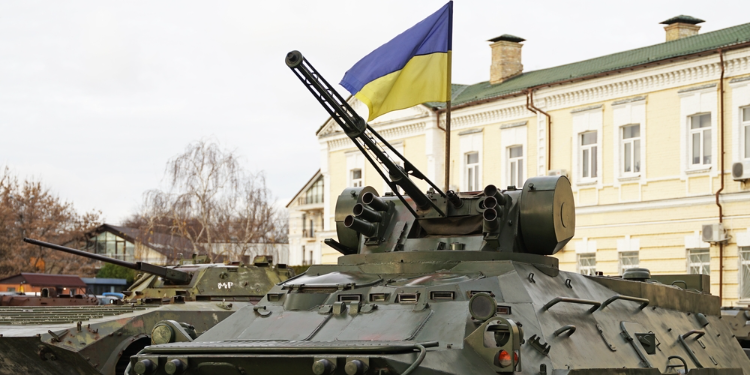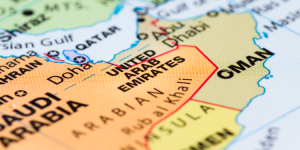
Thursday, February 24, 2022, will be a memorable day for Ukraine and the rest of the world. Kyiv, Kharkiv, Odesa and Dnipro are attacked by the Russian military forces. The Russian president decided to ignore the warnings of the UN Security Council (convened to resolve the crisis between Ukraine and Russia) and announced the beginning of a military operation while the Ukrainian president called for peace. The rest of Europe condemn an unfair war started by Russia. Locals and expatriates in Ukraine are plunged into uncertainty and fear. One week has gone by, and the population prays for peace. Here are some testimonies from members of the Expat.com community.
A dark period for expats
Martin, an expat in Kyiv, didn't expect to write this testimony on February 24, 2022. “I'm writing from Odesa, Ukraine. Yes, I'm still here, with some friends. At 5 a.m. (Kyiv time), Russia decided to invade Ukraine and threatened to annihilate any country that might try to interfere. I guess they won't hesitate to attack them. For more than a month, we were all aware that Putin had moved nuclear weapons to Crimea and built up an army to invade Ukraine. Although there have been many disagreements, Russia is the only country to have invaded its own people, and there will be losses on both sides. It's a huge loss for both countries. Russia is sending its youngest and least experienced soldiers to the battlefield. It's the norm for them. A few missiles from – probably from ships – have hit the local area, but so far, only beaches and military bases. It's even more disappointing that Belarus has also declared war on Ukraine. I always thought that these countries were on good terms. But I imagine that when a bully says "stay with me", you can just obey. There are no flights, no trains, no buses. And under Martial Law, you can get stuck in traffic jams if you're lucky enough to have a car. I hope and pray that all of this will come to an end and that we can all enjoy this beautiful free country again. »
From day one of the war, anti-bombing sirens and explosions have become part of everyday life in Ukraine. People were running for their lives and seeking refuge in the subways as instructed by the local authorities. The world is surprised by how one sovereign state has invaded another. The people are shocked and terrorized. “I heard several explosions. The airport control tower has been destroyed. Russian tanks have invaded Sumy. I don't know for how long they will remain there,” wrote Vet, another expat, on February 24. The next day he continued: “It was still calm in downtown Odesa last night. Russian troops are in Kherson. Bombs and rockets are raining in Kyiv. Kharkiv is on alert. Chernobyl and Sumy have been invaded too". Meanwhile, a border post was destroyed in Zaporizhia. The war threat looked quite realistic a month ago, but today Ukraine is at the heart of chaos. “I can hear the bombings and the fights. The Russians are already in my area", write a Swiss expat in Kyiv on the same day.
The UN Security Council tried by all means to negotiate a way out of the diplomatic crisis. Presidents Biden, Macron and British Prime Minister Johnson also engaged in discussions with Putin to avoid war, but Russia had already made a decision. Today, the whole European balance is threatened. The months-long negotiations to prevent the Russian invasion were vain. On the spot, the population experienced rising tensions every single day. On February 22, Xav, an expat in Ukraine, warned: “The entry of Russian tanks into Dombass is an evident declaration of war, according to international law. For Putin, Dombass is an autonomous republic, but for the rest of the world, it is Ukraine. Bringing the Russian army into Ukraine is a declaration of war. It's the beginning of a really dark period".
To leave or to stay?
A week before the bombings, Xav was already putting questions to the expat community in Ukraine: “So who's staying and who's leaving?" For locals and immigrants alike, answering this question is difficult. Still, expatriates consider Ukraine their own country, just like their homeland. Vet decided to stay. "We must not forget that this conflict started in 2014 and has never stopped since then". In 2014, Russia annexed the Crimean peninsula from Ukraine. Some were already speaking of an armed invasion of Russia. But the nightmare only began on February 24, 2022. The Swiss expat says: “On the first day of the war, my girlfriend showed me a video on Telegram. Russians or sympathizers wearing Ukrainian uniforms seized an armored vehicle and overturned a civilian car with it. We could see the bodies on the ground with the Ukrainian soldiers around." The next day, his neighborhood, Oblonsky, was transformed: "According to a red zone map, it seemed that my neighborhood was in the heart of the fighting and the most exposed in Kyiv. It was unbelievable as we are not in the city center of Kyiv. It is only a residential area without government administrations". Still, the Swiss expat decided to stay. But where?
Another resident in Kyiv was asking for advice earlier this week: "As far as I know, all train tickets from Kyiv are already booked for the next few days, and I don't have a car. If I'm lucky enough to get a ticket to Odessa, I wonder if it's worth it? I guess Kyiv will fight, but I don't know if Odesa would be a better option". Another expatriate decides to go to Lviv, not far from the Polish border. "I've reached Lviv, but I'm stuck here because there practically no means to get to the Polish border. It's pretty quiet here at the moment, but I doubt it will last. I am trying to find an alternative means of transportation to the border. Otherwise, I guess I'll have to stay here'. For Martin, it's actually better to flee to a European country: "It's obvious that there will be big battles in Odessa. Frankly, it is better to travel to Europe by train if you can. It's quiet here for the moment, but we had a lot of flying bombs flying over our heads”. However, his attempt to move to Odesa was vain. “Things did not work as I expected. I will first leave Kyiv for a neighboring town. I think it's just a matter of time before the chaos spreads everywhere".
On the fifth day of the war, the Ukrainian forces were still holding firm. Kharkiv, the country's second-largest city, was still under the control of Ukraine. But as the country has finally agreed to talks in Belarus with Russia, Ukrainian forces in Kyiv are preparing for an assault in Russia. Meanwhile, the whole world is expressing solidarity both on the spot and on the Internet. Expatriates are sharing information, offering help, and discussing carpooling, evacuation plans, food, etc. Those who chose to stay are stocking up. Tension can be felt in the countryside as well, where the population can only rely on its unity and on solidarity. Access to food is easier in the cities. An expat in Zaparojie, southeast Ukraine, testified: “We don't yet have fuel issues as such, but I filled my car tank as a precaution. The local store is busy usual. There is a shortage of large water bottles, but that's a small detail. Yesterday the sports club and many cafes were closed". The Swiss expat in Kyiv confirms: “We're having normal access to everything: water, electricity and Internet. The only thing that's missing is peace".



















